Whether they mean to or not, teachers often have a significant impact on their students. And sometimes, students have a significant impact on their teachers, too. With this in mind, we asked teachers of the BuzzFeed Community to share experiences they've had with students that not only opened their eyes but compelled them to change something about how they conduct their classes. Many teachers came forward with simultaneously heartbreaking and heartwarming stories, so here are some of them below:
1. "It was a grade one-to-two class. The first time I asked the class a question, a student gave me a totally wrong answer. I replied, 'No, that’s wrong,' and watching eagerness turn to disappointment was enough to never say an answer is wrong again. I felt physically sick. Now, I say something like, 'It’s going in the right direction but not there yet,' 'I can see how you might think that,' or, 'I like that you are looking for a connection to what you already know.'"

2. "The day one of my seventh graders broke down because they couldn’t get their homework done changed everything for me. Their mom and dad worked three jobs apiece, there were four other kids in the house, and this kid took care of all of them while the parents were working. It’s been six years, and I haven’t given homework since then."

3. "In 1991, during my first year teaching, I fussed at a student for not completing his homework. At the end of the class, another student stayed back, shook her head at me, and said, 'His lights got cut off yesterday.' I'm still in education, and I have never fussed at another student about not completing homework."

4. "When I was student teaching, my mentor teacher used a clip chart. (Students get their clip moved down the chart for 'bad behavior' and up for 'good behavior'). In my first year as a teacher, I also used one, as that was what I was taught for classroom management. One day, I had a student move their clip down, and they were devastated. A little boy in my class said, 'Don't cry, I always get clipped down. You get used to being the bad kid after a while.' My heart broke that something I did had caused a child to believe that he was a bad child. I took the clip chart down right then and there, and I told that little boy that he wasn't a bad person and that I was so sorry I had made him feel that way."

5. "High school english teacher here. When I was a student, my teachers would often do 'popcorn' reading, where students would read aloud and then throw the reading to their peers by saying, 'Popcorn, [name].' It was generally a fun way to keep students engaged, so while student-teaching, I decided to have students popcorn-read a passage from a novel. A student then popcorned to his classmate, who clearly looked very embarrassed and hesitated before reading aloud. Within the first few seconds, I could tell this student must struggle with a form of dyslexia. He stumbled over many words and seemed to guess what word he was reading by the first two or three letters. After realizing how humiliating this could be for students who struggle with reading challenges, I now read passages aloud myself and then ask students if they would like to read aloud (which they can decline)."

6. "I was thoughtlessly using the phrase 'parents' in my classroom until, during my second year teaching, I had a transfer student who was a foster child. Because he had been bounced around, he was very withdrawn and not interested in connecting. The first time I said 'parents,' I saw him look away. I felt awful because I just hadn’t been thinking. From then on, I said 'your grown-up.' The very next time I sent something home, I said, 'Your grown-up...' and he smiled a little. After, he began opening up a little in class and even made a couple of friends. It was a little thing for me to do, and it really helped him feel a sense of sameness with his peers."
"I always look at every bit of information about my students' background now so I can make them feel safe and included."
—Anonymous, Utah
7. "I noticed that every time we did group work, one student would never get chosen until all the groups were full and some group had to take them. From that point on, I have never let students pick their groups or partners. I choose them all."
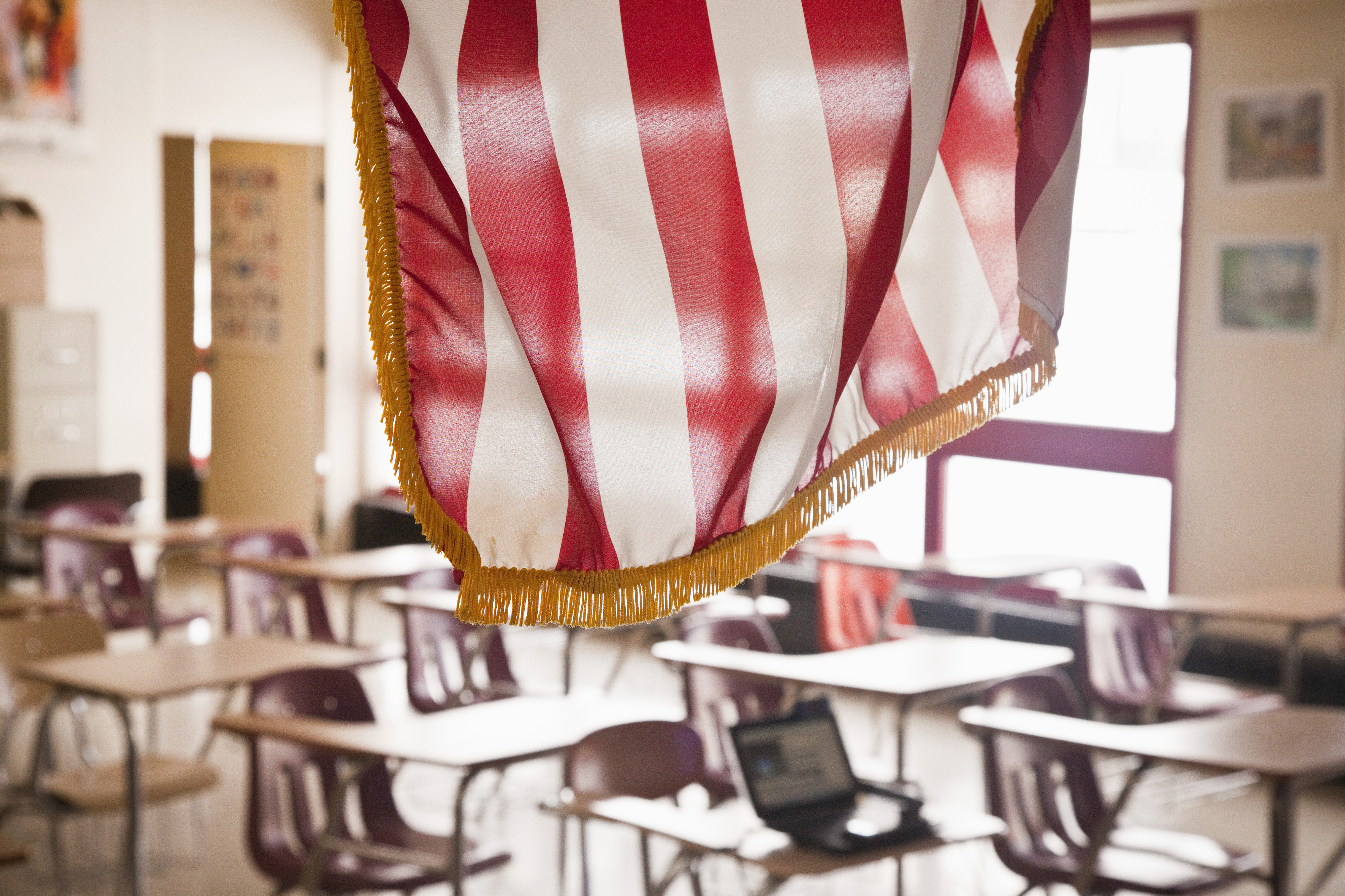
8. "Once, a student was given detention for wearing a sweater that wasn't the proper school sweater. I found her crying in the classroom later that day, and she told me she couldn’t afford the school sweater. The next day, I kept a stock of school sweaters in the back of the room for anyone who couldn't afford them."

9. "I'm a high school teacher. When I first started, I tried so hard to stay out of the kids' 'drama' and just focus on teaching. I had a student who I liked but thought was dramatic because she was often crying. Later, I found out that her stepdad was violent toward her as she protected her disabled brother, and CPS was removing her from her home. As a result, I basically instituted an 'if you're having a bad day, I have a quiet room to be alone' policy. If a student is upset, they know they can come in and ask or point to the closet, and they can sit in my closet with the door propped open to sleep or chill."
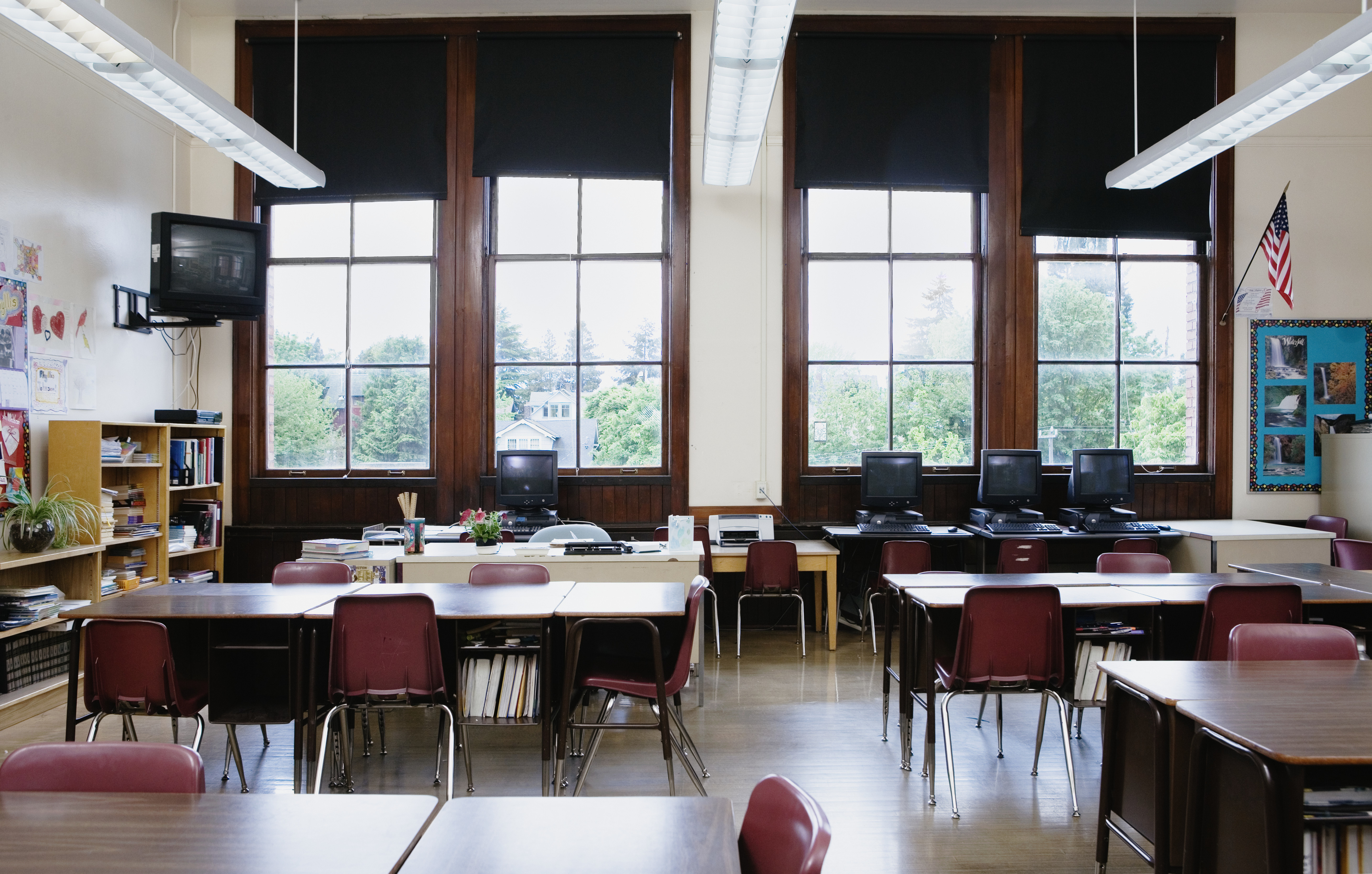
10. "Last year, during parent/teacher conferences, I was reviewing data on a student's reading progress. Unfortunately, he was about two years behind. I asked his mother what kind of reading he did at home, and she scoffed and said none. I was taken aback because I think reading is very important, but she then explained to me that she works 14 hours a day at a restaurant, and her son did his virtual learning in a booth there. I didn't know that because he always had his camera off. She told me that she only has Sundays off, and they were spent cleaning, doing laundry, and cooking. It really made me consider that not everyone shares my priorities. Of course, she wants what's best for her child, but she is in survival mode. This realization shook me, and I think about her often."
—Anonymous, California
11. "I remember one student solving a long division problem differently than taught in class and getting marked wrong, even though he got the correct answer. I also remember having this exact same scene play out in my childhood as my parents are first-generation Americans. I decided that instead of marking the work incorrectly, I would have these kids teach me and the rest of the class their methods, and students could use whichever was better for them. One method of solving a math problem is not the be-all-end-all like most teachers teach. Several students have immigrant parents and are taught how to solve math problems according to their country's method."

12. "After learning that some students I had were trans but too scared to go by anything but their dead names and old pronouns, I added a place for preferred names and pronouns on a 'Getting to Know You' assignment I give at the beginning of the year. Only I see it, and I privately ask if I can use their preferred name and pronouns in class. It makes such a difference for some kids, and it is so easy to do."
"I don’t care who the attendance sheet says you are. Who do YOU say you are?"
13. "When I first began teaching, I thought I needed to call home every time a student had a rough day. One day, I called home for a student, and the next day, they showed up covered in bruises from the beating they got at home. It was then I decided that unless it was something absolutely necessary to call home about, what happens at school stays at school."

14. "During parent-teacher conferences, a parent once told me how thankful she was that I grade using colorful markers with smiles rather than Xs. She said her son hated the color red because his previous teacher would mark his papers with huge, red Xs. In my class, her son came home much happier to show off his colorful smiles."
—Anonymous, Maryland
15. "I teach high school english. One year, I had a student with a pretty severe anxiety disorder. Their parents told me it was so bad they might not even ask to go to the bathroom if they needed to go. To make sure they felt comfortable, at the start of the year, I told all students that they were old enough to go to the bathroom without having to ask permission. I also added that if they just needed a break or to stretch their legs, they were free to leave the classroom as well. I was a bit worried about students taking advantage of this, but no one did. The feedback they gave me was that they felt respected. The original student's parents told me it really helped their kid feel more comfortable and autonomous. Now, I do it every class."

16. "One of my students was moving out of district and had forgotten to return a paperback novel (probably worth less than $10). My department head at the time was a real stickler for returning materials, so I told the kid he needed to have someone bring the book to school. The student's father showed up obviously impaired — probably drunk — to return the book. The poor kid was so embarrassed, and I felt horrible. Two things became clear to me: 1.) Kids are more important than materials. 2.) Kids and their lives are complicated."

17. "I used to teach writing using a Standard American English rubric, so I expected my students to work toward mastering the formal language. One semester, I had a student whose writing was brilliant beyond his years, insightful and witty, but he couldn't seem to grasp the mechanics of formal writing. When I sat down with him one on one to discuss where he could improve, he pointed out the rules from AAVE (African American Vernacular English) he was using. It became really obvious that this kid was doing great, he just spoke another dialect of English at home. After that, I changed my curriculum so students would be graded on their mastery of English as a whole, not just the privileged standard version."
"It's incredible how much students can thrive when we don't get in their way!"
—Anonymous, Michigan
18. "As a teacher, I've never shied away from calling home. However, it became a daily part of the job during the pandemic. Between the more frequent phone calls and video conferences I was holding with my students, I became more intimately acquainted with their homes. I learned quickly that more of my students than I'd ever imagined were living in dirty, loud, and smoke-filled homes. It was common for others in the home to yell, curse, walk by on camera with no shirt on, and demand the student get off the computer during class to go walk a dog, watch a sibling, or run an errand. I even had numerous parents scream at me on camera in front of an entire class. After that, I decided I will never be firm about a due date again, and every kid will have the chance to re-submit work. I don't know how they get anything done in those homes, and I won’t be the teacher who holds them accountable when they’re struggling to focus in places like that."

19. "I’ve been teaching students with disabilities, including intellectual disability, multiple disabilities, autism, TBI, and OHI. My students are high school-aged but cognitively and sometimes emotionally function at preschool to third-grade levels. A lot of my students have ADHD or exhibit stimming behaviors. I used to be super strict about making sure the kids were exhibiting 'normal peer behavior,' which essentially meant I was refusing them from participating in activities that calmed and regulated them. I started following an autism advocacy page on Facebook and learned so much about how what I was doing was actually harmful. I now don't care if my students stim or need to regulate themselves in a non-traditional way to what schools expect."

20. "I had my first trans student whose name on record clearly did not match their identity. It made me reconsider how I called roll on the first day of class — because the last thing I wanted to do was out someone. Now, I call first-day roll by last name, and I ask each student to share their preferred name and pronouns (doing my part to normalize that!). I've since had several other trans students who have told me that they really appreciated the discretion."
"And after years campaigning for it, my college now has a policy where students can have their preferred names on their logins, even if it's not yet their legal name!"
21. "I teach college math and used to have strict attendance policies — the 'four or more absences gets you an F' kind. After a few years, I realized I didn't care that much about it, and my policy didn't cause any student to change their behavior. However, it did hurt the ones who have a lot going on in their lives, whether that be multiple jobs, families, etc. Now, students get what they get, regardless of how often they come to class, and I offer minimal attendance credit as a reward."

22. "It's been more than 20 years later, but I'll never forget a graduating student from about 15 years ago who came by my class to say goodbye. After exchanging pleasantries (and a thank you for letting me eat lunch in your room every day), he told me about the relentless bullying gay students faced at our high school. I was gobsmacked; I truly had no idea. When I asked him why he didn't confide in me during any of the many lunch periods he spent in my room, he said, 'Because it's just how it is here.' That conversation so shook me to my core that it started my lifelong journey to be a visible and vocal ally both inside and outside of the classroom."
—jmcv
23. "During my first year teaching, two of my much older mentors guided me toward nit-picky rules, like not giving students pencils or refusing to accept late work. I thought that was how you did things — until I realized that some kids truly don't have someone at home giving them school supplies, checking their homework, and a hundred other variables. Now, I give supplies out freely."

24. "This one was actually with a parent. One year, I had a teenage student with a traumatic brain injury due to shaken baby syndrome. Their father was a rigid police officer with seemingly no empathy or patience, so I assumed he was somehow involved in the incident that caused the disability. Turns out, the person who caused it was their teenage babysitter. These parents will have to support their child for the rest of their life due to one fateful night trying to share some time together. It taught me to never judge the parents."
"You never know what they are coping with."
—Anonymous, Alaska
25. "I think all my students impact my teaching in some way as every student learns and behaves differently. However, the biggest change I've made is giving students the chance to share. It seems so simple but makes such an impact. It started with a student notorious for acting out. I had him for a 90-minute reading lesson, and other teachers told me stories about his behavior. When I started class, he raised his hand, so I let him share. He then told a five-minute story about his family and, afterward, participated well in the lesson. I then started doing this for all of my students. It takes time, but I'll give up 10 minutes of my lesson for student engagement. My goal is to meet them where they are and learn what works best for them. It's such a great way to build relationships, and students love it when you follow up with them like, 'How was your soccer game yesterday?' Kids just want you to listen sometimes."

26. "My first time working in a primary special ed class opened my eyes to the need for preferential seating. Many children couldn't sit still in their chairs for a minute, and I was losing my patience. One day, my student said her brain wouldn't let her sit still no matter how much she tried to tell it to. A lightbulb went off in my head. I should've known this! I then got floor cushions, exercise balls, and more for them to sit on during class and even let them lie down on rugs while writing or reading. They can also stand or do stretches to get their wiggles out. It helped the kids immensely."
27. "My first year as a teacher, I constantly prompted my off-task third-grade student, even going as far as to actually tap his paper. Then, one day, I watched him work on a problem that no one had solved. He was diligent in his work, trying again and again until he eventually found the answer. As a class, we celebrated. As a teacher, I learned to open my mind (and my eyes) to what learning can look like. I never tapped another paper."

28. "I'm a special education teacher for students with severe disabilities. I’ve learned over the years that offering choice is huge (i.e. 'Do you want to do this now or in five minutes?' 'Do you want to do it yourself or do you want help?' 'Do you want to sit in the blue chair or the red chair?'). Offering a choice, even if it seems like the smallest thing, can be so empowering and teach important life and independent skills. Neurotypical children have the privilege of making countless choices a day, and we take that away from our disabled students."
—Anonymous, Massachusetts
29. "Distance learning was hard. My frustration was evident, as was the frustration of my kids on a daily basis, so we implemented a social-emotional curriculum. One lesson focused on identifying our emotions, naming them, and calming down. We practiced as a class often, but it was so much more effective when I actually used those strategies in front of my kids when I was frustrated. Rather than just teaching them, I started doing each calm-down strategy. My kids started doing it, and parents mentioned how it helped at home."

30. "College professors give anywhere from two to five exams in a class. We try to space them evenly apart, but every professor is doing the same thing, so students often have multiple exams in the same week or day. Sure, we want them to be disciplined and organized enough to handle an exam load like that — we tell them ahead of time when their tests will be — but that's still asking a lot of young adults who are learning discipline and organization but don't necessarily have the skill yet. So, to help them practice, I tell them on the first day to look at all of their class, athletic, social, etc. schedules for the semester, identify any points when they think they will have a hard time juggling everything, and let me know in the first three weeks of class if they want to reschedule any of their exams with me, no questions asked. It gets more students to look ahead and plan, and their reward for doing so is a bit of the burden being taken off their backs."

31. "Hunger! So many kids are hungry during the school day. Some of my students have blood sugar problems, don't have food at home, and can't afford lunch. Some are just growing a lot. I've had snacks available for students to eat for years. I don't make them ask for them, and not a single student has ever taken advantage of it."
"It's an out-of-pocket cost but completely worth it. It feeds hungry kids and cuts way down on 'hangry' behaviors."
—Anonymous, Kansas
32. "As a pre-K teacher, I’m very accustomed to the tantrums and other difficulties that come with the job, but this one kid changed everything. He had faced difficulties in school since he was an infant, biting, hitting, etc. By the time I had him, he was killing worms during outside time, and spitting on, hitting, and kicking other students and teachers. He'd even throw heavy objects at people. He'd do everything in his power to instigate with other students and disrupt the classroom. He'd also often ask us what would 'dead' us, offering eerily graphic hypotheticals. In response to his apparent lack of empathy and remorse, we (my teaching team) modified and instituted the teddy bear curriculum which emphasizes creating habits of respect, communication, mindfulness, reflection, boundary-setting, etc. It helped the class as a whole in beautiful and observable ways."
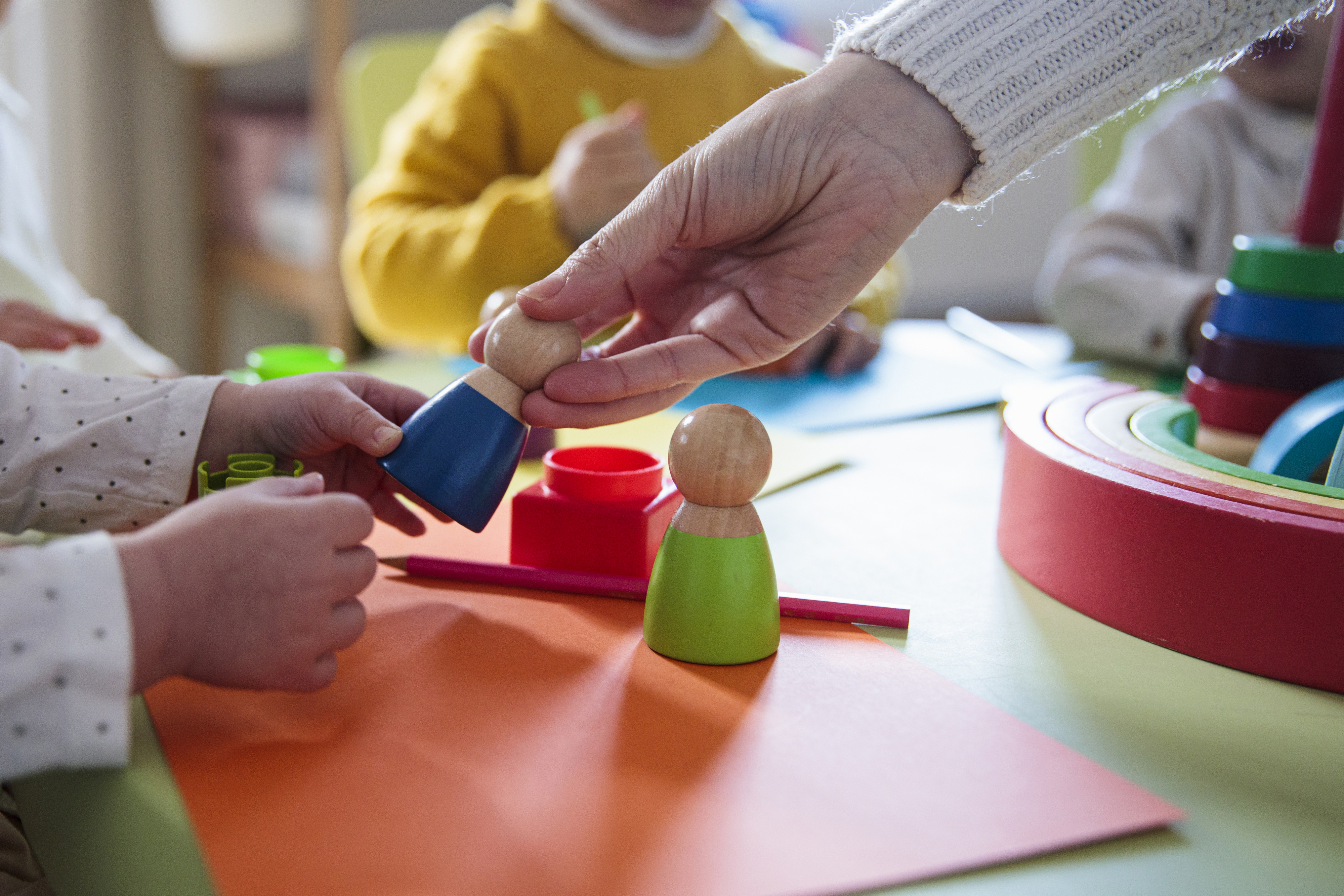
33. "I’m an elementary PE teacher in the South. It's really easy to just split up boys and girls to make teams. One day, a student came to me and said, 'What if we're nonbinary?' I didn’t even think about that. Since then, I've stopped making teams based on gender."
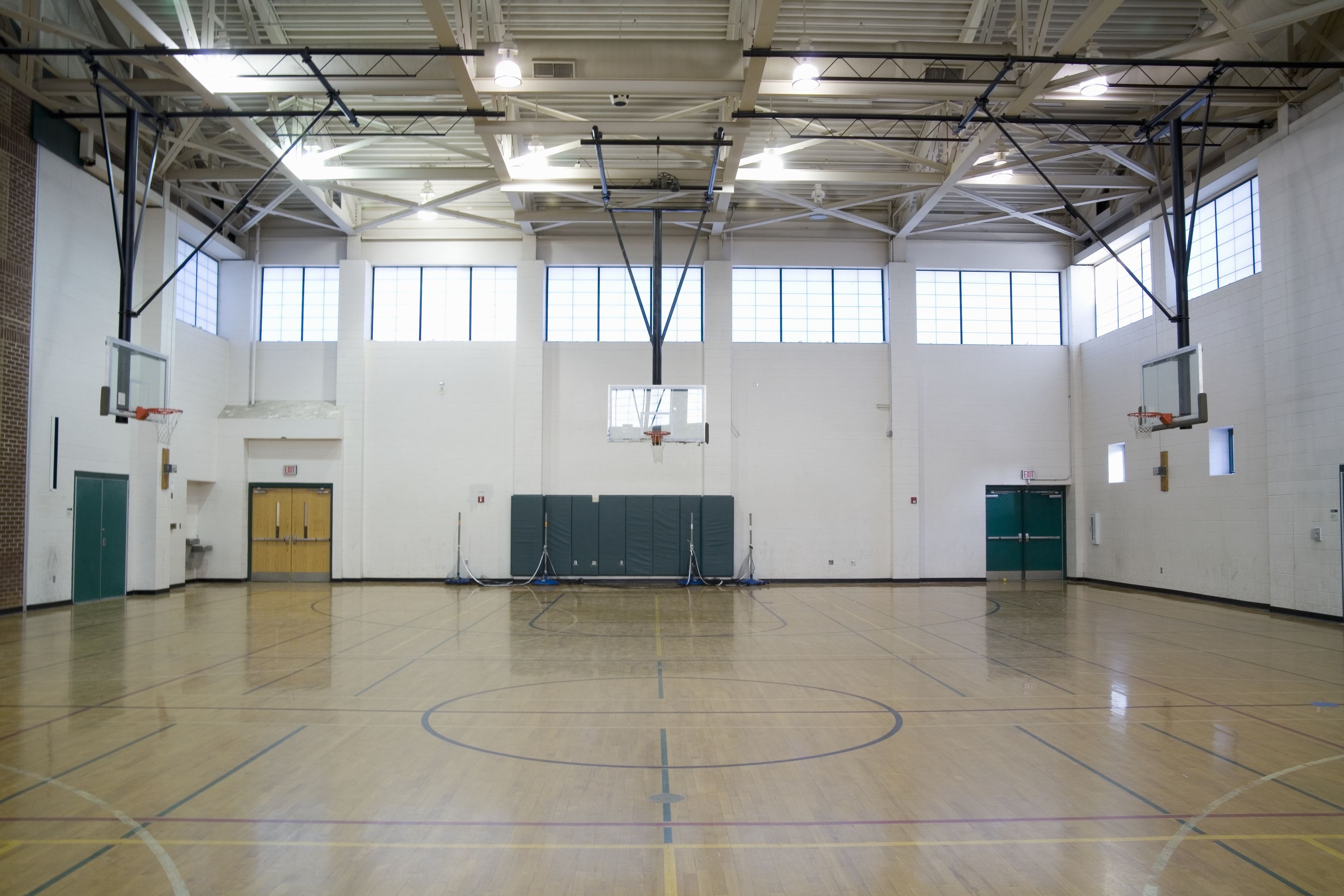
34. "I have always tried to have an inclusive classroom when it comes to the holiday season, teaching about how others celebrate that time of year. You want to be excited and get the kids excited as well. However, until I worked in a low-income area, I never truly understood what a privilege celebrating the holiday season is. My fellow grade-level teachers and I planned a $5 gift exchange with the kids, but only a third of my class brought anything, leaving the others left out. I quickly put together gifts for them to play with, but I will never do that again. Ever. No child should be made to feel less than others."

35. "During student teaching, I learned to always love the kid no one likes extra hard. I had a student in my class that all teachers spoke ill of. He was 'never going to amount to anything.' All year, I went out of my way to treat him like he was super smart and capable of anything. I was the only class he ended up turning anything in for that year, and he really was brilliant. Students will generally rise to your expectations, whatever they are, so I always look for my outliers now; the ones who need someone to see them, fight for them, and believe in them, especially when no one else will."
"I also realized that when a student says their favorite hobby is sleeping, they aren't lazy like I used to assume. They are probably working a job to help put food on the table, and sleep is precious. I started pulling these students aside to customize assignments since they were carrying such a big load.
Also, I used to wonder what was wrong with a student until I started having parent-teacher conferences. Some kiddos have to overcome a lot just to show up to school every day."
—Anonymous, North Carolina
36. "College prof here. I had a student who, at first glance, seemed like they were never paying attention — not participating, always on their phone, leaving class all the time, etc. One day, I confronted them about it and asked why they were acting like they didn't want to be there. Their answer totally changed the way I view student behavior. They apologized and told me they had anxiety about walking back to their dorm by themselves in the dark — it was a night class — so they'd get progressively anxious and scared during class and couldn't concentrate. As a woman who's felt the exact same way walking home in the dark, I totally understood. From then on, if we ever had one-on-one meetings or split the class in half, I always scheduled this student toward the beginning so they could walk home in the light."

37. "I teach eighth-grade math. This past year was a struggle for many students. However, I had one student who seemed to be struggling more so than others. When given an assignment, this student would turn it in blank every single time. Turns out, he had incredibly severe anxiety, and seeing all of the problems on the paper would cause him to shut down. He knew how to solve the problems but couldn’t show me how he got the answer. So for the next quiz, I had the teacher assistant monitor the class while I took this student to a separate room and verbally gave him the problems one at a time. He was able to verbally walk me through each problem correctly. I'm now adding a question to my beginning-of-the-year student survey: 'How do you prefer to demonstrate your math abilities? Via pen and paper assignments or verbal demonstration?'"
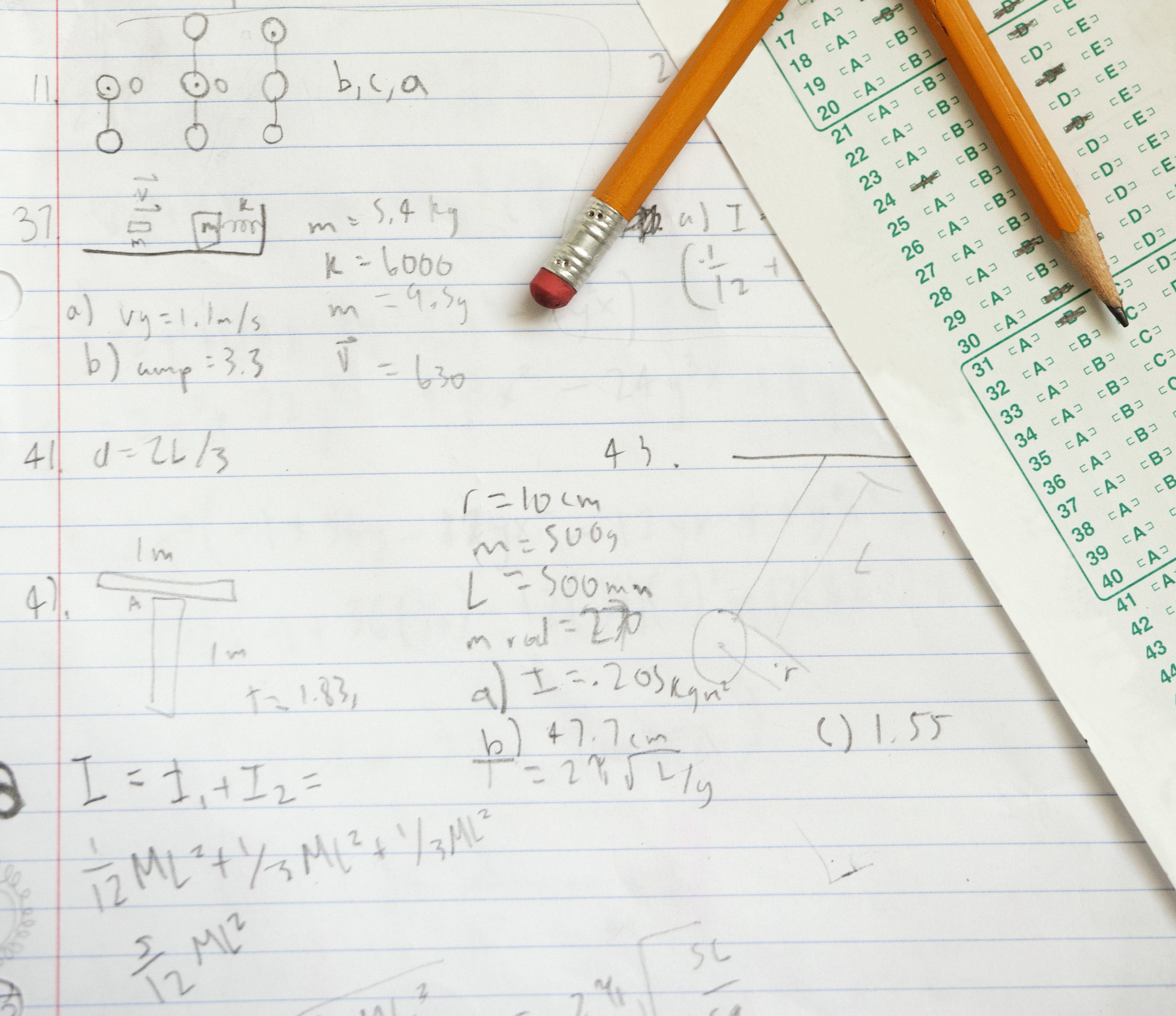
38. "Every day of my life teaching high school, I was the one who learned from my students. I'm never my best during the first period, so I initially didn't do well with late students. One day, I got upset with a student who came late. In talking to her, I learned that every morning, she had to get all of her siblings up, dressed, and to school because her mother was not able to help. She taught me to be humble, ask questions, and, most of all, not assume that students (children) don't care or don't want to be at school. I apologized to her, in front of the class, and thanked her for reminding me that compassion, communication, and listening are the most important parts of teaching. It changed my view of the people I was responsible for."
"Do no harm. High school students learn in spite of us, not because of us. Anything that I can ask, do, or listen to, to help them is the job of a teacher.
Teachers have a profound influence on the lives of our students. A grumpy morning for me could turn into something unhealthy for the spirit and soul of these beautiful children in my charge."
—Anonymous, California
39. "I teach a foreign language in middle school, and I don't call on students — no popsicle sticks, no cold calls, no calling on kids who aren't paying attention. So many students expressed their anxiety about speaking in front of the class to me that I took raising your hand out of my participation policy. As long as you're willing to talk to classmates in a group setting and to me one-on-one, you get 100% for participation in my class."
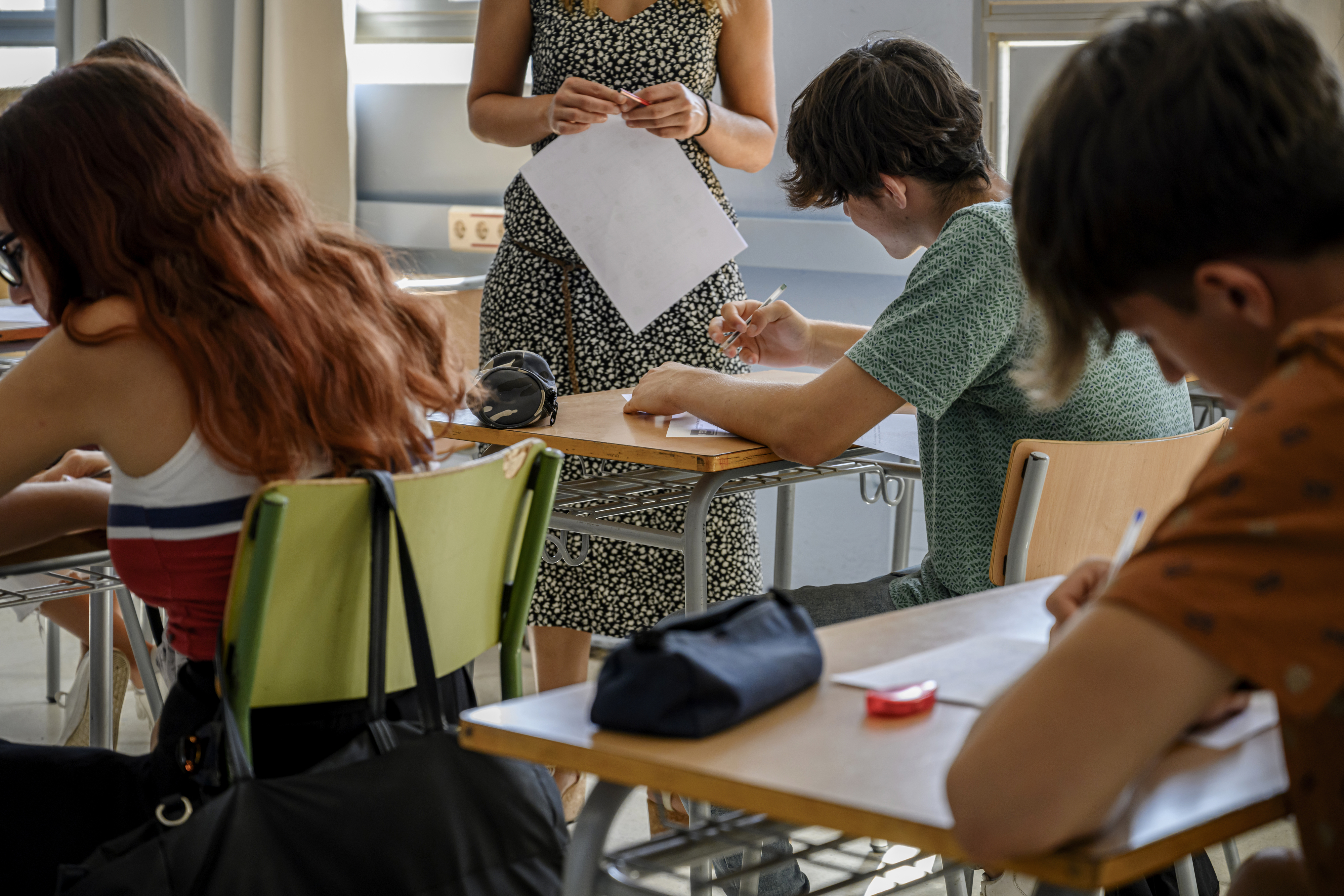
40. "I am a primary teacher. One of my students was in a car accident with her mother. Unfortunately, her mother passed away. I am now fully aware of the many different kinds of families out there and try to steer clear from the 'mother,' 'father,' or 'parents' language. I also am not going to celebrate Mother’s Day and Father’s Day like we usually do. Too many kids out there don't have a mom or dad to celebrate, and I think it is incredibly important to consider that."
—Anonymous, California
41. "I teach drama at a performing arts high school. In my first year, I had a student who never wanted to do anything. She would come in late and was generally disengaged. After three weeks, I told her, 'It's pretty hard to fail drama, but you're getting there.' Later, while working on a scene with a group, she refused to do anything performance-related but asked if she could get credit by building a prop for her scene (her group needed a bouquet). I okayed it but said it had to be worthy of credit. Twenty minutes later, she presented the most beautiful and intricate bouquet I've ever seen. It was made entirely out of paper and a paper towel roll. I asked her if she had any interest in working behind the scenes, and, for the next three years, she worked on every show and stayed after school to help build scenery. She even stage-managed two productions. It made me realize that students aren't bored, you just haven't figured out how to engage them yet."

42. "I was a TA for an ethnographic course that included a lot of discussions. The students were insightful and had great participation grades; the issue was their papers. Many had 'improper' grammar. The professor and I were frustrated because we knew how smart these kids were, so he had me hold meetings with each student to help them. Now, the papers were written in a narrative, storytelling style, so the students were writing about their own experiences in the first person. It then dawned on me that the majority of the students were Black, and the papers were grammatically correct in AAVE. I realized we were putting expectations on the students that didn't match their personal experiences and brought it up with the professor. I pointed out that books in the first person are usually written in the way the narrator naturally speaks and thinks. My professor agreed it was unfair and changed the way he graded, and we noticed a difference in students' confidence."

43. "I’m a teacher in a pediatric behavioral/mental health program. I recently was sent a student whose file said he was threatening violence and eloping from the classroom. One day, he blew up because his black marker 'wasn't black enough.' We tried to reason with him, but he was really upset, so we gave him space. He eventually calmed down and returned, and things were fine. Days later, something was wrong with his lunch, so he announced he was going home. He actually walked out of the building. We went after him, and he continued calmly explaining that his lunch was wrong, so he was going home. It was very matter-of-fact. Instead of yelling and forcing him inside, we talked about how he didn't know the way home and might get lost. We suggested going back inside and seeing if his mom could bring a different lunch or pick him up. He then willingly came back, got super into a project, and completely forgot about going home. Turns out, he was on the spectrum."

44. "I used to represent kids in the juvenile justice system. Sometimes, I'd help them enroll back into school when they got out of jail. Most schools didn't want them and didn't hide it. I took one kid to tour a school, and I'll never forget it. He'd been through a lot and was a tough guy, but that whole tour, they were so awful to us. He kept shrinking closer to me until he was glued to my side. We couldn't get out of there fast enough. He cried in my car about how 'they don't want [him] here' and '[he] should just drop out.' It broke my heart. This continued until our sixth school. There, the principal had clearly read the file I sent. She knew his name, came out to greet us, and showed us around. She was so welcoming and genuinely happy to help him get back into school. She kept up with him the whole time he was there, called me when he was struggling, and clearly cared. I don't know who cried more when he graduated, her or me."

45. "My high school science teacher changed his bathroom policy. He used to not allow anyone to go to the bathroom during his class. One day, a girl asked to go to the bathroom, and he said no. She had to go up to his desk and whisper, to a male teacher, that she had just gotten her period and really needed to visit the bathroom. He felt so bad and had never even considered that, so he immediately changed his policy."

46. "When I started teaching, one of my students came out as trans. I hadn't thought that an angsty, emo, purple-haired student would be the one to connect with me, a conventionally preppy, milquetoast teacher. She opened my eyes to my own prejudices and, among other things, taught me to be careful with subtle gendered and exclusive language. Instead of asking a girl, 'Is there a guy you have a crush on?' I could ask, 'Is there someone special you have your eye on?'"

47. "It was my first year teaching at a Philadelphia public school, and our school had a uniform policy that banned hooded sweatshirts. I had one student who came into class every day with a hoodie and refused to take it off. Being a first-year teacher, I was told to not seem weak and be consistent in enforcing rules, so each day he came in with the sweatshirt, I’d ask him to remove it. He wouldn’t, and I'd call a dean to have him removed from class. It was a toxic loop that went on for a few weeks. Finally, a veteran teacher came to talk to me. She told me she knew that this particular student was experiencing intermittent houselessness and was currently at a spot that did not have heat. 'This baby is cold, not defiant,' she said. It smacked me like a Mack truck."
"From that moment on, I realized how important it is to build relationships with students so that you know what’s going on in their home life. It’s the only way to be an effective teacher."
—Anonymous, Pennsylvania
48. "During my second year teaching, I had a student who'd often be disruptive, silly, and generally a pain. He often wanted my attention, so I gave him a notebook and said he could write in it whenever he finished his independent work, and I'd look at it when I wasn't teaching. I was absolutely floored by some of his writing. He wrote about others wanting him to be tough but how that wasn't in his heart and wanting to make better behavioral choices. He'd even apologize for acting out and ask if I read what he wrote. I assured him I did, and this became a journal where he could express himself, and I could reinforce that I knew he was a good kid and believed in him and his ability to make good choices. Having this connection allowed me to level with him when issues came up, and I saw improvements in his behavior. He was in first grade but acted like an angsty teen in a 7-year-old's body. Later, I found out about some messed-up things happening at home."

49. "When I became a teacher, I had to do a 20-hour practicum in a sixth-grade class with a particularly tough set of kids. Once, when I assigned homework, only two of the seven kids completed it. Naturally, I took on my 'teacher face' and asked why they didn't do their work. There were excuses like, 'I didn't have paper at home,' 'I had too much work to do in the house,' and 'I didn't know how.' I replied, 'Why didn’t you ask your parents for help? I'm sure they would have helped if you'd asked,' and told them they could always take paper from another notebook. Only one kid spoke up, and his answer will never leave my memory as long as I live. He said, 'You have to be one of those cookie-baking, PTA mothers who cook dinner every night and do laundry and shit like that, huh?' I said yes, I'd baked my share of cookies and tried to fix supper when I wasn't too tired."

